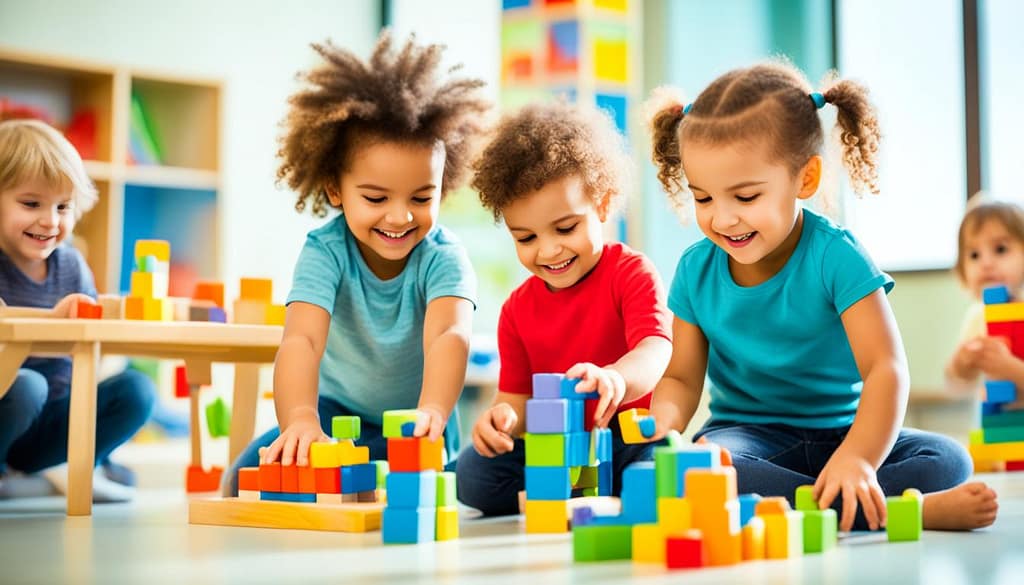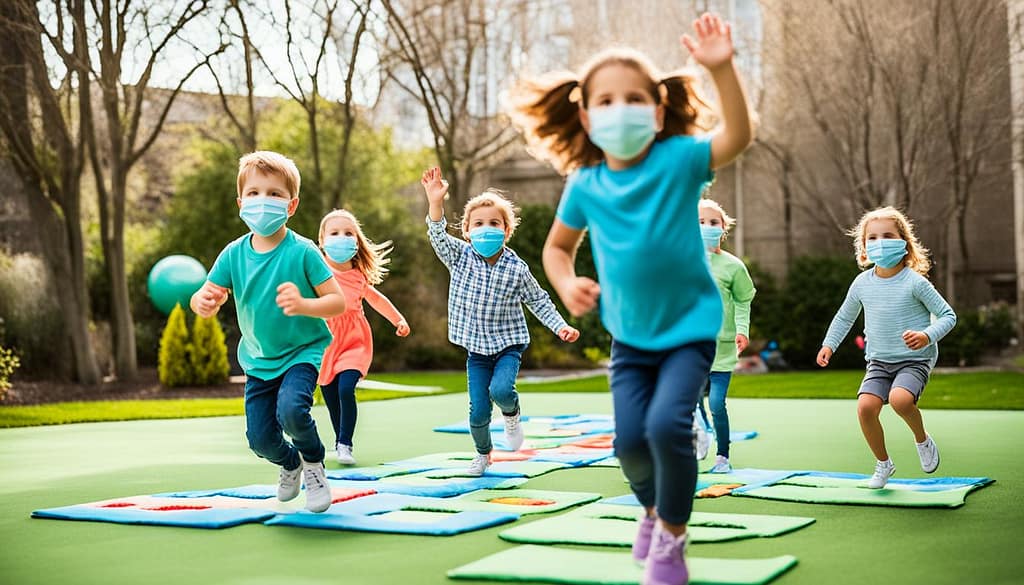Do you remember your first playdate as a child? The excitement of meeting a new friend, exploring together, and creating memories that would last a lifetime? Playdates are more than just fun and games; they are an essential part of a child’s social development.
Through playdates, children learn valuable skills such as communication, sharing, and problem-solving. These interactions lay the foundation for building strong relationships and developing crucial social skills that will serve them throughout their lives. As a parent, you play a vital role in facilitating playdates that not only bring joy but also nurture your child’s social and emotional growth.
In this article, we will explore tips for organizing successful playdates, enhancing social skills, and empowering your child to navigate the world of friendships with confidence. Together, let’s create playdates that don’t just play out, but leave a lasting impact on your child’s social development.
Finding a Playmate
Finding the right playmate for your child is crucial. It’s important to consider their personality and interests when organizing playdates. Here are some tips to help you find the perfect playmate for your child:
Reach out to Teachers
Teachers are a great resource when it comes to understanding your child’s social interactions. They can provide insights into your child’s personality and the children they naturally gravitate towards. Reach out to your child’s teachers and ask for their advice in finding a suitable playmate.
Observe Group Activities
Pay attention to the group activities your child participates in, such as sports clubs or birthday parties. This can help you identify potential playmates with similar interests. If your child enjoys playing soccer, for example, consider reaching out to other parents from the soccer team to organize a playdate.
Involve Your Child
Empower your child by involving them in the process of finding a playmate. Ask them about their interests and who they would like to invite for a playdate. This not only helps build their confidence but also ensures that they have a say in the activities and playmate selection.
Start with Shorter Playdates
If your child is meeting a new friend for the first time, consider starting with shorter playdates. This allows them to ease into the new friendship and ensures a positive experience for both children. As the friendship develops, you can gradually increase the duration of the playdates.
| Pros | Cons |
|---|---|
| Opportunity for children to build social skills and make new friends. | Finding the right playmate can take time and effort. |
| Children can learn from one another and engage in imaginative play. | Compatibility issues may arise between playmates. |
| Playdates allow children to practice sharing, communication, and problem-solving skills. | Busy schedules and conflicting availability can make it difficult to coordinate playdates. |
Involving Your Child in Planning a Playdate
Getting your child involved in planning a playdate can be a fun and educational experience. By involving them in the decision-making process, you can not only empower your child but also ensure that the playdate activities align with their interests and preferences.
Start by brainstorming with your child about the type of activities they would like to do during the playdate. Whether it’s indoor or outdoor play, structured activities or free play, encourage your child to share their ideas and desires. This collaborative approach fosters communication skills and helps your child develop a sense of control and confidence.
To make the playdate more comfortable for your child and their playmate, especially if the friend is new, consider starting with a shorter duration. This allows the children to get to know each other in a low-pressure environment and build rapport at their own pace.
Playdate Activity Ideas
Here are some playdate activity ideas to inspire you and your child:
- Create an arts and crafts session where they can draw, paint, or create DIY projects.
- Organize a scavenger hunt in your backyard or nearby park for an exciting adventure.
- Set up a mini baking session where the children can decorate cookies or cupcakes.
- Have a dress-up party with costumes and accessories for imaginative play.
- Build a fort using blankets and pillows for a cozy hideaway or a spaceship for a galactic adventure.
- Play classic board games or card games that encourage problem-solving and strategic thinking.
- Arrange a playdate at a local playground to promote outdoor play and physical activity.
| Activity | Benefits |
|---|---|
| Arts and Crafts | Encourages creativity and fine motor skills development |
| Scavenger Hunt | Fosters problem-solving, teamwork, and observation skills |
| Baking | Enhances cooperation, following instructions, and fine motor skills |
| Dress-up Party | Boosts imaginative play, storytelling, and social interactions |
| Fort Building | Stimulates creativity, cooperation, and spatial awareness |
| Board Games | Develops critical thinking, problem-solving, and turn-taking skills |
| Outdoor Play | Improves physical health, coordination, and social interactions |
The Fun Bit – What to Play?
The activities during a playdate should be engaging and enjoyable for all participants. There are various playdate activities that can spark creativity, promote socialization, and enhance problem-solving skills. Here are some playdate ideas that are sure to keep the children entertained:
1. Building an Obstacle Course
Encourage teamwork and communication by building an obstacle course using furniture, boxes, and cushions. Children can take turns navigating through the course, helping each other overcome challenges, and cheering for their friends’ accomplishments.
2. Sensory Treasure Hunt
Get the children excited about exploring their surroundings with a sensory treasure hunt in nature or the backyard. Create a list of items for them to find or simply provide clues that lead to hidden treasures. This activity promotes conversation about different stimuli and encourages the development of observation skills.
3. Kids MasterChef Experience
Foster teamwork, communication, and fine motor skills by organizing a Kids MasterChef experience. Provide easy-to-cut fruits and snacks, along with child-safe kitchen utensils. The children can work together to create their culinary masterpieces, encouraging creativity and cooperation.
4. Building an Indoor or Outdoor Fort
Spark imaginative play by building an indoor or outdoor fort using blankets and cushions. This activity allows children to create their own imaginary world and act out various scenarios. It also provides a cozy space for storytelling and quiet reading.
5. Painting, Craft Activities, and Board Games
Engage children in creative endeavors by providing painting materials, craft kits, or a selection of board games. These activities not only stimulate their imagination but also promote fine motor skills, problem-solving, and concentration.
Offering a variety of playdate activities ensures that there is something for everyone and creates an engaging play environment for all participants.
Playdates During the COVID-19 Pandemic
Playdates are a valuable part of a child’s social development. However, during the COVID-19 pandemic, ensuring the safety of children and their families is paramount. It is essential for parents to communicate and collaborate on safety measures and preferred formats for playdates. Here are some tips for organizing safe playdates and minimizing the risk of COVID-19 transmission:
1. Communication and Comfort Level
Start by having open and transparent conversations with the other parents regarding their comfort level and safety expectations. This will help establish a shared understanding and ensure everyone feels secure during the playdate. Discuss topics such as mask-wearing, social distancing, and any specific concerns or preferences.
2. Explore Different Formats
Consider alternative playdate formats that minimize physical contact and reduce the risk of virus transmission. Virtual playdates through platforms like Zoom or Facetime offer the opportunity for children to interact and engage in activities while maintaining a safe distance. Outdoor playdates in open spaces can also be a safer option, as fresh air and ample space allow for social distancing.
3. Teach and Reinforce Safety Measures
Ensure your child understands the importance of adhering to safety measures during playdates. Teach them about proper hand hygiene, wearing masks, and maintaining a safe distance from others. Encourage them to follow these guidelines and explain why it is crucial for everyone’s well-being.
4. Disinfecting Surfaces
Before and after the playdate, make sure to clean and disinfect the play area and frequently-touched surfaces, such as toys, doorknobs, and tables. This simple step can help minimize the potential spread of the virus and keep everyone safe.
5. Individualized Snacks and Hygiene
Avoid shared snacks or food items during playdates. Instead, provide individualized snacks for each child. Additionally, ensure that all children have access to handwashing facilities or hand sanitizers throughout the playdate to maintain good hygiene practices.
By following these guidelines, you can organize safe playdates for your child during the COVID-19 pandemic. Prioritizing the well-being and safety of everyone involved is key to creating a positive and enjoyable playdate experience.
Tips for Hosting Successful Playdates
Hosting a successful playdate requires careful planning and preparation. By following these playdate tips and guidelines, you can create a fun and engaging environment for all children involved.
Communication is Key
Communicate the playdate details with the other parent in advance. Discuss the date, time, location, and any meals or snacks provided during the playdate. Clear communication ensures that everyone is on the same page and helps avoid any misunderstandings.
Create a Safe and Welcoming Environment
Prioritize childproofing your home to mitigate potential hazards for the children. Designate a specific play area within your home where children can freely play and explore. Ensure cleanliness and proper lighting to create a comfortable atmosphere for everyone.
Balance Structured Activities and Free Play
Plan a mix of structured activities and free play to keep the children engaged and entertained. Structured activities can include arts and crafts, storytime, or simple games. Allow time for free play where children can use their imagination and creativity.
| Age-Appropriate Toys and Options |
|---|
| Provide a variety of age-appropriate toys and options for the children to enjoy. This ensures that they have options that cater to their interests and abilities. Examples of age-appropriate toys can include puzzles, building blocks, dolls, or artistic materials. |
Consider Food Allergies and Dietary Restrictions
Before the playdate, inquire about any food allergies or dietary restrictions that the children may have. Respect and accommodate these restrictions by providing safe and appropriate snacks or meals. Be mindful of cross-contamination and practice safe food handling.
Establish Simple Rules for Behavior
Setting simple rules for behavior helps create a harmonious play environment. Encourage sharing, taking turns, and using kind words. Ensure that all children feel included and have a positive experience during the playdate.
Incorporating these hosting playdate tips and guidelines will contribute to a successful and enjoyable playdate experience for both children and parents. By fostering a safe and inclusive environment, you can help facilitate social interaction and the development of important social skills in young children.
Conclusion
Playdates are more than just fun get-togethers for children; they are valuable opportunities for social development and fostering friendships. By organizing playdates, involving your child in the planning process, providing engaging activities, and creating a safe and inclusive environment, you can support your child’s social skills development and help them build meaningful connections.
During the COVID-19 pandemic, it’s crucial to prioritize safety while still facilitating social interactions. Adapt playdates to follow recommended guidelines, such as distanced interactions, virtual playdates, or outdoor activities. By teaching your child about safety measures and practicing them during playdates, you can ensure both their physical well-being and their social growth.
Playdates offer a wide range of benefits for young children. They help develop important social skills, such as communication, empathy, and problem-solving. Through playdates, children get the chance to explore their imagination, nurture their independence, and build resilience. Remember, every playdate is a valuable learning opportunity that contributes to your child’s growth and development, so seize the benefits of playdates and watch your child thrive!


